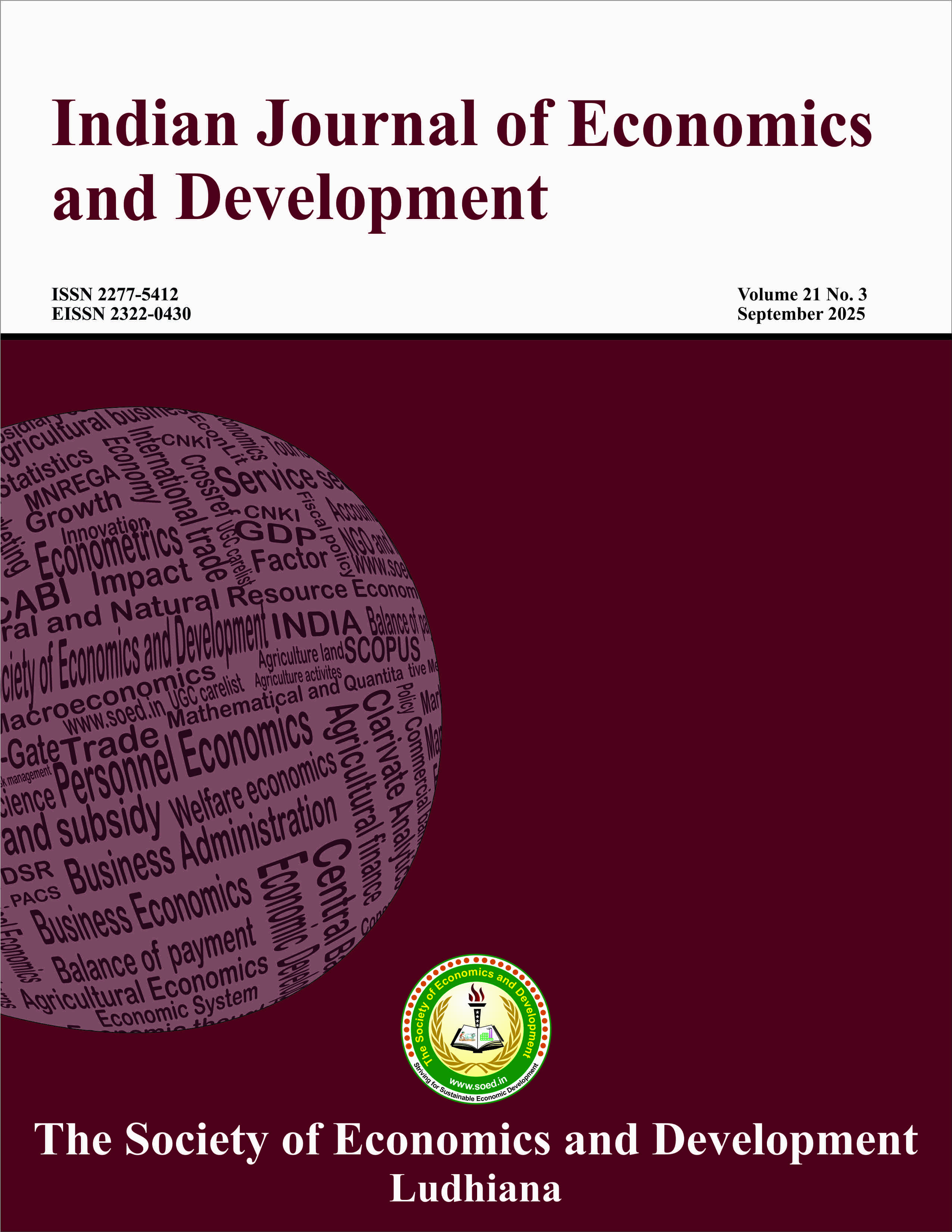Factors Influencing the Livelihood Security of Beneficiaries under the Tribal Sub-Plan (TSP) Project in Meghalaya

Price: ₹ 500
Author: Deepa Thangjam, Mary N Odyuo, James Watt Haobijam and Devina Seram
Author Address: Assistant Professor, Department of Rural Development and Planning, School of Agricultural Sciences, Nagaland University, Medziphema campus-797103 (Nagaland), Associate Professor, Department of Agricultural Extension, School of Agricultural Sciences, Nagal
Keywords: Annual income, beneficiaries, economic growth, livelihood security.
JEL Codes: C10, I38, O15, Q16.
Abstract
The present study examined the factors influencing the livelihood security of beneficiary farmers under the Tribal Sub-Plan (TSP) project in Meghalaya. It assessed the personal, socio-economic, and communication characteristics, as well as the Livelihood Security Index, of the beneficiary farmers under TSP. The findings revealed that most beneficiary farmers had marginal-sized landholdings and fell into the medium-income category. The analysis showed that most of the farmers (67.2 per cent) fall under the moderate category of the livelihood security index. Furthermore, variables such as age, farming experience, extension personnel, media exposure, and social participation all influenced the livelihood security of beneficiary farmers. The study emphasised the benefits of TSP and the importance of strengthening and promoting such schemes to address the diverse and region-specific needs of the tribal population.
Description
Indian J Econ Dev, 2025, 21(3), 546-553
https://doi.org/10.35716/IJED-24438



